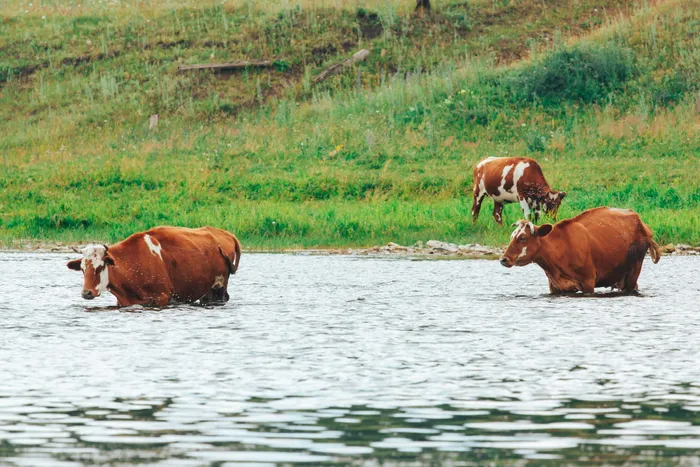
Department of Agriculture Minister John Steenhuisen announced on Wednesday that the Department will be ramping up vaccination against Foot and Mouth Disease (FMD).
Image: Bulat Khamitov/Pexels
Minister of Agriculture John Steenhuisen on Wednesday announced a sweeping national plan to vaccinate South Africa’s entire cattle herd against Foot and Mouth Disease (FMD) as the country battles one of its most severe outbreaks in decades.
Addressing the African Farmers' Association of South Africa (AFASA) Leadership and Strategic Partnership Conference, Steenhuisen said the government will implement a comprehensive, phased national vaccination strategy, starting with the provinces hardest hit by the disease: KwaZulu-Natal, Gauteng, Free State, Mpumalanga and North West.
“The Department of Agriculture has resolved to implement a comprehensive strategy to vaccinate the entire national herd. This initiative will position us to apply to the World Organisation of Animal Health (WOAH) for recognition of freedom with vaccination status,” he said.
“This plan, however, will rely on a consistent, high-quality vaccine supply.”
Steenhuisen said that the government is working closely with the Onderstepoort Biological Products (OBP) and the Agricultural Research Council (ARC) on the formalisation of public-private partnerships with domestic industry and international partners, including China and Argentina, who have already offered technical cooperation and support regarding vaccine provision.
He said he wanted farmers to know that he sees the impact this outbreak is having on their businesses, with KwaZulu-Natal accounting for 180 of the 274 unresolved outbreaks nationally.
“Despite the vaccination of 931 200 animals with government-procured vaccine stocks over the last three months, uncontrolled animal movement continues to undermine containment efforts and prolongs the crisis."
Last week, Mayor of uMngeni Municipality in KZN Chris Pappas said the FMD outbreak in the province continues to worsen, with new reports emerging from the Richmond and Ixopo areas.
“These newly affected areas lie dangerously close to major dairy-producing districts such as Creighton, Mooi River and Howick, which are home to some of KwaZulu-Natal’s most productive herds. the spread of FMD into our core dairy regions would devastate farmers and severely disrupt the agricultural value chain," Pappas said.
“We cannot afford delays or half-measures. Urgent containment is essential.”
Wandile Sihlobo, chief economist at the Agricultural Business Chamber of South Africa, said the industry is at a crisis level, struggling to control the FMD, and this step of vaccinating the national herd is a response to this challenge.
“We have a national herd of around 7.2 million cattle. This means vaccinating all these cattle will be a massive undertaking," Sihlobo said.
"Still, this decision is courageous, as it ensures that South Africa protects its cattle herd and can continue its red meat export focus.”
Sihlobo added that the challenge now will be the logistics of this work, as well as re-engaging the export markets about the step South Africa is taking at the moment.
“Another vital issue is the sourcing of the necessary vaccines. Currently, South Africa is working to revive the Agricultural Research Council (ARC) and OBP to produce the essential vaccine. But the path must not end here," he said.
"We must ensure that other private-sector stakeholders are part of vaccine production. If we continue on this path, the private labs must be included, and this will be part of our theme of inclusion and working with the private sector.”
The Red Meat Producers’ Organisation (RPO) welcomed the announcement.
“The biggest issue with FMD for primary extensive livestock producers is not the disease itself, but the economic consequences associated with it.”
RPO added that we can now follow a progressive pathway in terms of vaccination, and in our view, it is the first tangible step in the right direction.
“It is something that the RPO, as well as its value chain partners in the Red Meat Primary Cluster has been lobbying for with the government. This action plan means that weaner producers will regain market access, feedlots will resume operations, and we can return to a normal flow of products in the red meat value chain," it said.
“We are, however, grateful that some groundwork has already been laid, such as identifying possible vaccine suppliers.”
BUSINESS REPORT